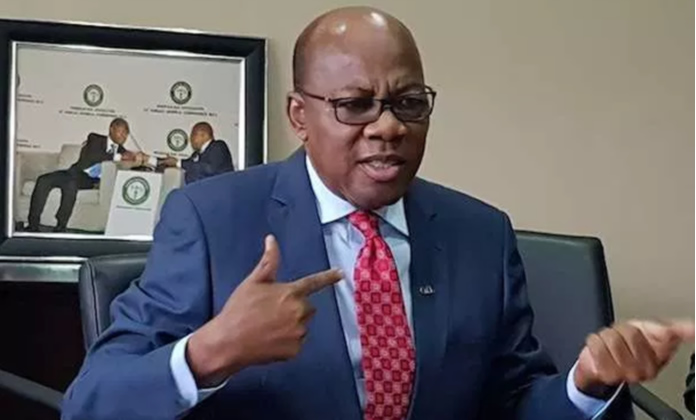In view of the economic challenges being experienced in the country, cerebral Senior Advocate of Nigeria (SAN), Dr. Olisa Agbakoba has decried continuous neglect of the poor and vulnerable people, especially in budget allocation, and challenged the Federal Government (FG) to reduce cost of governance.
Agbakoba who was recently appointed to head the federal government’s Committee for the Development of National Arbitration Policy, made the call during the monthly forum of the Finance Correspondents Association of Nigeria (FICAN) held in Lagos on Friday.
Speaking on the topic: “Discussion with Agbakoba on 2021 budget and the economy,” the former president of the Nigerian Bar Association gave an instance of the current American budget with 50 per cent allocation to benefits.
He wondered why there is no such allocation meant for the aged, vulnerable people in the country’s budget. The country according to him is structurally damaged and it can only be fixed by massive political and economic rejuvenation.
Talking about the recent #EndSARS protest that was hijacked by hoodlums, Agakoba noted that the excluded poor masses exhibited a bottled resentment. According to him, the poor has been harboring anger against the rich but they cannot hurt anybody because they know that the police are around.
“But on that fateful day when everything went down, they took advantage of it to vent their anger. It is not enough to say that you are giving food to school children. Such programmes must be institutionalized. If government continues to spend 40 to 60 per cent of its budget paying just one million Nigerians who are in public service, then there is imbalance,” he stated.
According to him, a lot of money government raises goes into paying salaries. There is too much duplication and waste in the ministries. government needs to implement the Oronsaya report so that it can shrink the workforce and release money for appropriate sectors.
Proffering solution, the legal expert said the answer lies in devolution of powers.
“The Constitution Exclusive and Concurrent lists. These lists have 98 items of powers. The Federal Government exercises exclusive power over 68 items on the exclusive list.
”The states in concurrence with the Federal Government, exercise power over 30 items on the concurrent list. But the States may only exercise power on the concurrent list, only if the Federal Government has not already ‘covered the field’ on any of the 30 items.
”In effect, State Governments really have no power. I suggest that to resolve this, a committee may review the 98 items of power and assign what is best to Federal and what is best to the states, based on the principle of subsidiarity.
I also suggest the Exclusive list and Concurrent list be renamed as the Federal Legislative List and State Legislative list. The Federal Government will exercise reserved powers. The States will exercise devolved power,” Agbakoba suggested.
According to him, a government does not need huge budget. It is the economic resources that a state has that determines its capacity not the money the government has, stressing that a state like Lagos, for instance, is losing a lot of money through its inability to deliver efficient land titling.
His words: “One of the good ways to realize money is to look within yourself, to see if there are assets you can dispose off. If government were to get out of a lot of things it should not be doing, it will be in a stronger position to focus on work in the economy. For me, government should consult the unions and privatize all the airports. I am surprised that government even want to build new ones.
“The best run airport in Nigeria is in the hand of a private person. He wants his money back, that is why it is efficient. Government’s best way of generating revenue is from taxes. Government is still borrowing money and putting into Ajaokuta Steel Mill instead of selling it. The number of businesses that government has across Nigeria can generate about twenty to thirty trillion naira.”


